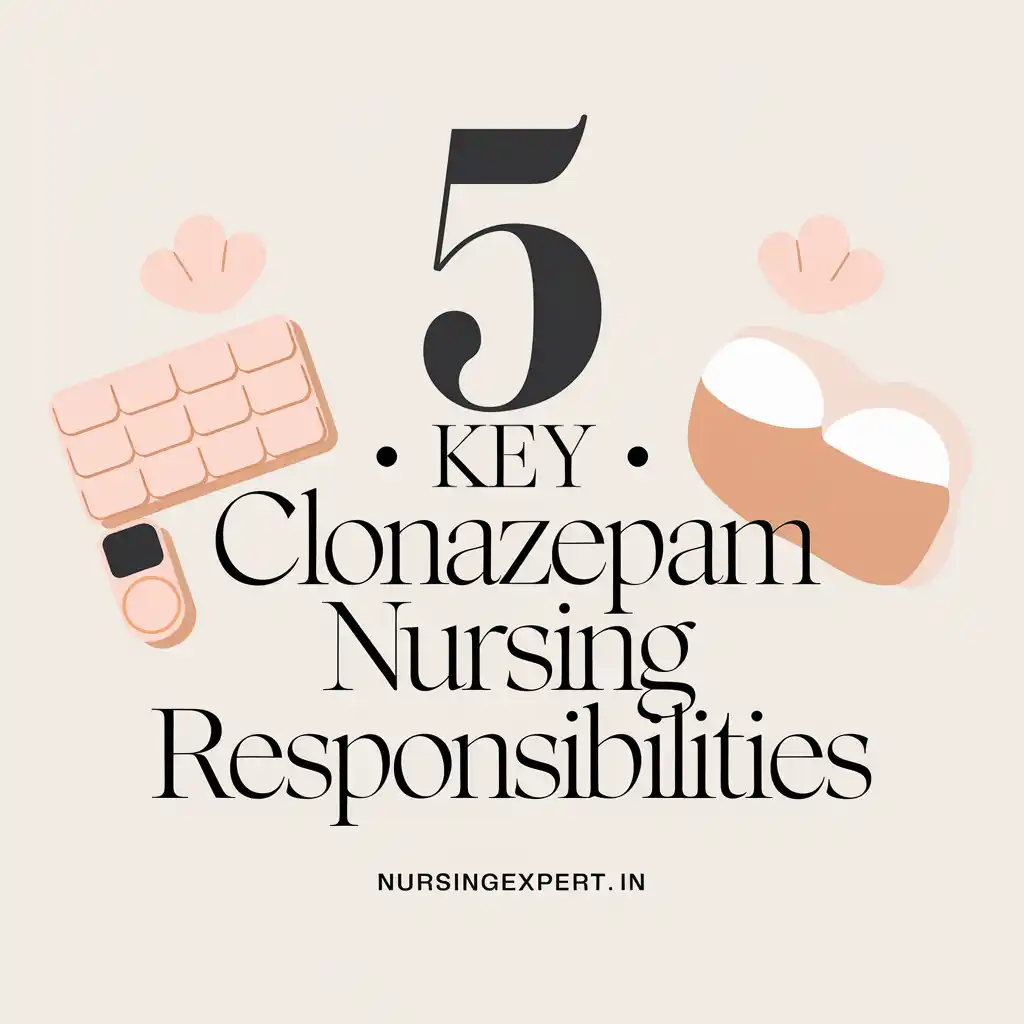Chlorpheniramine is a first-generation antihistamine widely used to manage symptoms associated with allergic reactions, hay fever, and the common cold. By blocking histamine H1 receptors, it effectively reduces symptoms such as sneezing, itching, watery eyes, and runny nose. However, its anticholinergic properties can lead to side effects like drowsiness, dry mouth, and urinary retention, necessitating careful nursing oversight. This article provides a comprehensive guide on nursing considerations and management strategies for chlorpheniramine to ensure safe and effective patient care.
Thank you for reading this post, don't forget to subscribe!
Drug Information
- Generic Name: Chlorpheniramine Maleate
- Brand Names: Chlor-Trimeton, Aller-Chlor, Chlorphen
- Classification: First-generation antihistamine
- Mechanism of Action: Chlorpheniramine competitively antagonizes histamine at H1 receptor sites, preventing histamine-mediated allergic responses. Its anticholinergic effects contribute to drying of secretions but also to side effects like sedation and dry mouth.
- Indications:
- Allergic rhinitis (seasonal or perennial)
- Common cold symptoms
- Urticaria and pruritus
- Allergic conjunctivitis
- Mild allergic reactions


Nursing Considerations
Nursing Assessment
- Evaluate Allergy Symptoms: Assess the frequency and severity of symptoms (e.g., sneezing, rhinorrhea, itching) to establish a baseline for treatment effectiveness.
- Review Medical History: Check for conditions that may contraindicate use, such as narrow-angle glaucoma, prostatic hypertrophy, or bladder neck obstruction, due to anticholinergic effects.
- Screen for Allergies: Confirm no hypersensitivity to chlorpheniramine or other antihistamines.
- Assess Respiratory Status: Evaluate for asthma or chronic respiratory conditions, as antihistamines can thicken secretions and impair expectoration.
- Medication Review: Identify concurrent use of CNS depressants (e.g., sedatives, alcohol) that could enhance sedation.
Nursing Interventions
- Administration:
- Administer orally with or without food; food may reduce gastrointestinal upset.
- Use a calibrated measuring device for liquid formulations to ensure accurate dosing.
- For extended-release forms, instruct patients not to crush or chew tablets.
- Monitoring:
- Observe for common side effects such as drowsiness, dry mouth, dizziness, or blurred vision.
- Monitor urinary output, especially in elderly males, for signs of retention.
- Assess symptom relief; notify the healthcare provider if symptoms persist or worsen.
- Safety Precautions:
- Advise patients to avoid driving or operating machinery if sedation occurs.
- Implement fall precautions for elderly or sedated patients.
- Store medication at room temperature, away from moisture and light.
Patient Education
- How to Take:
- “Take chlorpheniramine as directed, with or without food. If it upsets your stomach, try taking it with a meal.”
- Side Effects:
- “You may feel drowsy or dizzy. Avoid alcohol and other sedatives, as they can make this worse.”
- “If your mouth feels dry, sip water or use sugar-free gum or candy.”
- Precautions:
- “Don’t drive or do activities that require alertness until you know how this affects you.”
- “If you’re an older adult, be careful when standing up to avoid falls.”
- When to Seek Help:
- “Call your doctor if you have trouble urinating, severe dizziness, or if your symptoms don’t improve.”
Management
Dosage Guidelines
- Adults:
- Immediate-release: 4 mg every 4–6 hours; maximum 24 mg/day.
- Extended-release: 12 mg every 12 hours; maximum 24 mg/day.
- Children (6–12 years): 2 mg every 4–6 hours; maximum 12 mg/day.
- Children (2–5 years): 1 mg every 4–6 hours; maximum 6 mg/day.
- Elderly: Start with lower doses (e.g., 2 mg every 6 hours) due to increased sensitivity to anticholinergic effects.
- Renal/Hepatic Impairment: Use with caution; dose adjustments may be necessary.
Side Effect Management
- Drowsiness: Suggest taking the dose at bedtime and avoiding activities requiring alertness.
- Dry Mouth: Recommend hydration, sugar-free lozenges, or saliva substitutes.
- Urinary Retention: Advise patients to report difficulty urinating; consider dose reduction or alternative therapy.
Drug Interactions
- CNS Depressants (e.g., alcohol, opioids, benzodiazepines): Increase sedation; counsel patients to avoid these substances.
- Anticholinergics (e.g., atropine, scopolamine): Enhance anticholinergic effects like dry mouth or constipation; monitor closely.
- MAO Inhibitors: May prolong and intensify anticholinergic effects; avoid concurrent use.
Special Populations
- Elderly: More prone to sedation, confusion, and urinary retention; use the lowest effective dose and monitor for falls.
- Pediatrics: Use weight-based dosing; avoid in children under 2 years due to risk of paradoxical excitation.
- Pregnancy (Category B): Generally safe, but confirm with the provider; minimal risk in studies.
- Breastfeeding: Excreted in breast milk; monitor infants for sedation or irritability.
- Renal/Hepatic Impairment: May require dose reduction; monitor for accumulation and enhanced side effects.
Conclusion
Chlorpheniramine is an effective antihistamine for managing allergy and cold symptoms, but its anticholinergic and sedative properties require careful nursing management. By conducting thorough assessments, administering the drug correctly, monitoring for side effects, and providing clear patient education, nurses ensure safe and effective use. Tailoring care to individual needs—such as adjusting doses for the elderly or educating parents on pediatric dosing—enhances therapeutic outcomes and minimizes risks, making chlorpheniramine a valuable option in allergy management.
FAQs
- Can I take chlorpheniramine with other allergy medications?
- Avoid combining with other antihistamines or sedatives unless directed by your doctor, as it can increase drowsiness.
- How long does it take for chlorpheniramine to work?
- It typically starts working within 30–60 minutes, with peak effects in 2–3 hours.
- Is chlorpheniramine safe for long-term use?
- It’s generally used short-term. For chronic conditions, consult your doctor for alternatives with fewer side effects.
- Can I drink alcohol while taking chlorpheniramine?
- No, alcohol can increase drowsiness and other side effects.
- What should I do if I miss a dose?
- Take it as soon as you remember. If it’s near the next dose, skip it and resume your schedule. Don’t double up.


